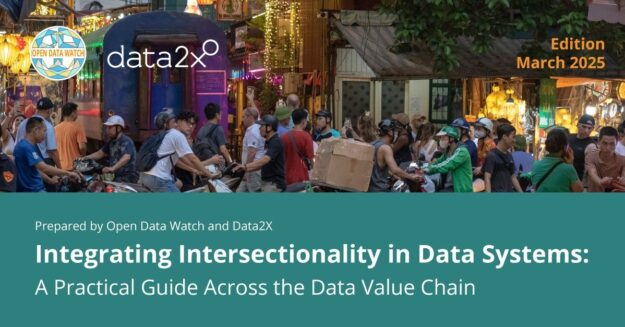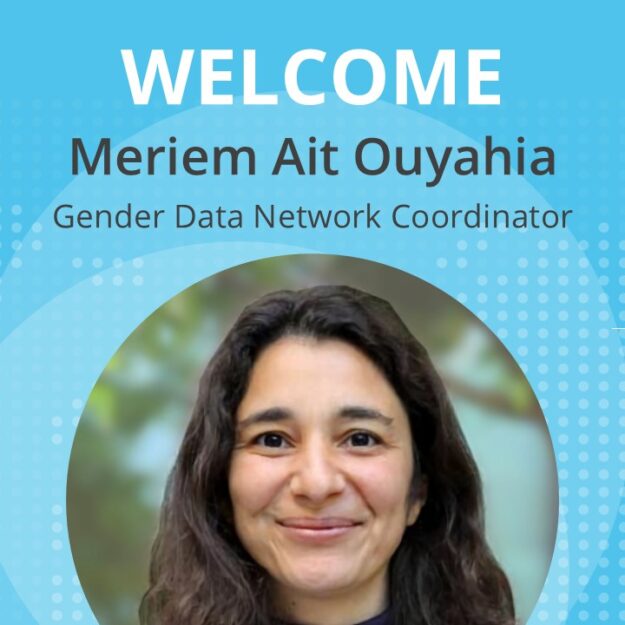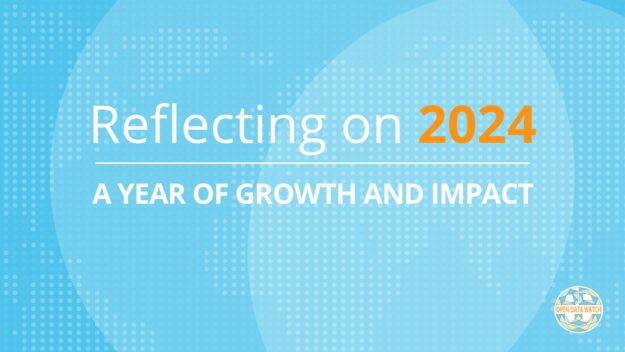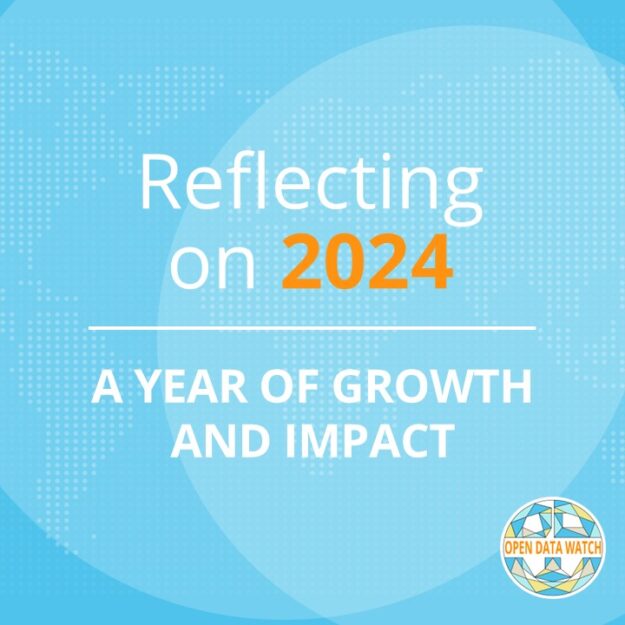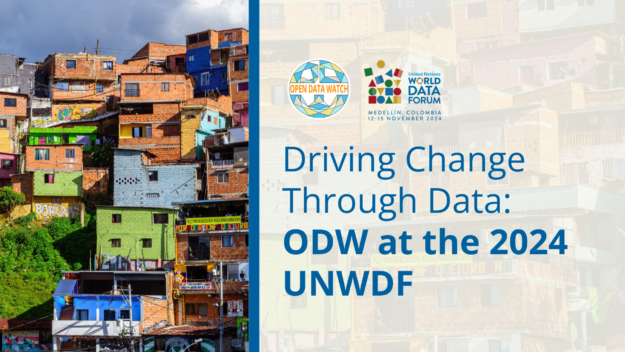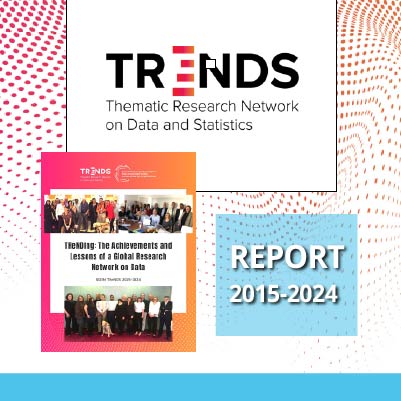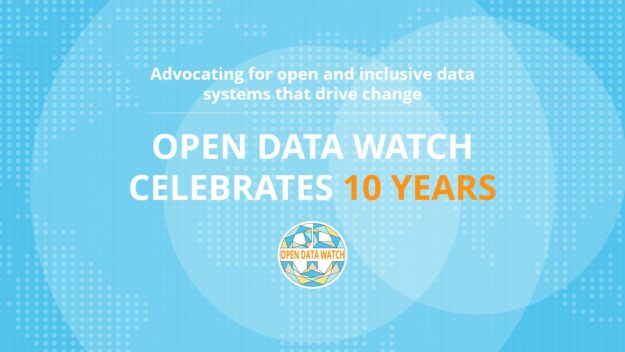Open Data Watch is an international non-profit, non-governmental organization that works at the intersection of open data and official statistics. It monitors the accessibility and comprehensiveness of official data in over 180 countries and provides practical information and assistance in implementing open data policies and systems. The Open Data Watch team has unparalleled experience in development data and is committed to making open data a global reality in support of Sustainable Development Goals.
This brief provides a practical guide for planning to build better data systems by integrating intersectionality at each stage of the data value chain, improving the quality and value of data, and creating meaningful impact.
After years of collaboration to build more inclusive and responsive data systems; Open Data Watch welcomes Meriem Ait Ouyahia as the Gender Data Network Coordinator.
As 2024 draws to a close, ODW looks backs on a decade of growth and learning — supporting countries to transform their data ecosystems, monitoring and promoting high-quality data and standards, providing research and data support to both countries and agencies, and leveraging combined substantive and networking resources to offer practical policy advice to improve data systems.
As 2024 draws to a close, ODW looks backs on a decade of growth and learning — supporting countries to transform their data ecosystems, monitoring and promoting high-quality data and standards, providing research and data support to both countries and agencies, and leveraging combined substantive and networking resources to offer practical policy advice to improve data systems.
National data systems have grown significantly in the last decade, but still fall short in delivering actionable insights needed by policymakers to make better financing decisions for better development outcomes.
The recently published “Elements paper” for the outcome document of the 4th International Conference on Financing for Development (FfD4) puts special focus on data and financing for data as a cornerstone of inclusive and evidence-based decision-making for sustainable development.
ODW had an active role at the recent UN World Data Forum where data experts, policymakers, civil society groups, and advocates focused on inclusive data, trust and ethics, effective partnerships, and maximizing the use and value of data in decision-making.
ODW had an active role at the recent UN World Data Forum where data experts, policymakers, civil society groups, and advocates focused on inclusive data, trust and ethics, effective partnerships, and maximizing the use and value of data in decision-making.
For a decade, TReNDS has gathered leading experts and actors to discuss the power of data to achieve progress on SDGs. It’s latest report reflects on the network’s achievements and proposes a way forward.
Ten years ago, Open Data Watch (ODW) started with a clear goal: that sustainable development can and must be empowered with quality operational data. It has been a journey defined by energizing partnerships, adding value, staying adaptable, and continually evolving.


